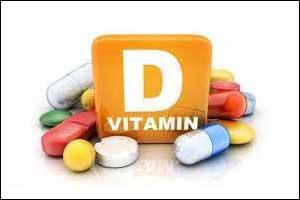- Home
- Editorial
- News
- Practice Guidelines
- Anesthesiology Guidelines
- Cancer Guidelines
- Cardiac Sciences Guidelines
- Critical Care Guidelines
- Dentistry Guidelines
- Dermatology Guidelines
- Diabetes and Endo Guidelines
- Diagnostics Guidelines
- ENT Guidelines
- Featured Practice Guidelines
- Gastroenterology Guidelines
- Geriatrics Guidelines
- Medicine Guidelines
- Nephrology Guidelines
- Neurosciences Guidelines
- Obs and Gynae Guidelines
- Ophthalmology Guidelines
- Orthopaedics Guidelines
- Paediatrics Guidelines
- Psychiatry Guidelines
- Pulmonology Guidelines
- Radiology Guidelines
- Surgery Guidelines
- Urology Guidelines
High vitamin D blood levels may prevent depression in elderly patients

High blood levels of Vitamin D may prevent depression in elderly,finds new study.
Increasing vitamin D levels in the body can prevent depression in older adults, indicate findings from a recent study.
The study, published in The American Journal of Geriatric Psychiatry, finds that serum Vitamin D, 25(OH)D concentration is negatively associated with the depression risk in older adults. Every 10-ng/mL increase in serum 25(OH)D was associated with a 12% decrease in the risk of depression.
Vitamin D is nicknamed as ‘sunshine vitamin' and is one of the essential nutrients that is known to have diverse but potent effects on our body. Vitamin D is an essential component for a number of physiological functions such as muscle performance, bone metabolism, calcium, and phosphorus homeostasis and immunity. Lack of vitamin D in the body is known to cause soft and brittle bones, constant joint or back pain, muscle pain etc.
The association between serum vitamin D and the depression risk in older adults has been controversial. Haibin Li, School of Public Health, Capital Medical University, Beijing, China, and colleagues performed a dose-response meta-analysis of prospective cohort studies to examine the association between serum vitamin D levels and depression risk in the older population.
The researchers systematically searched for databases that examined the association between the two parameters (vitamin D levels and depression risk) in older adults. Six prospective studies covering 16,287 older adults with 1,157 cases of depression were included and analyzed.
Also Read: Vitamin D deficiency or inadequacy linked to mental illnesses
Key findings:
- The pooled HR of depression for per 10-ng/mL increment in serum 25(OH)D was 0.88.
- A linear dose-response association between serum 25(OH)D concentrations and incident depression was observed.
Also Read: Vitamin D significantly improves mental health in elderly, finds Study

Disclaimer: This site is primarily intended for healthcare professionals. Any content/information on this website does not replace the advice of medical and/or health professionals and should not be construed as medical/diagnostic advice/endorsement or prescription. Use of this site is subject to our terms of use, privacy policy, advertisement policy. © 2020 Minerva Medical Treatment Pvt Ltd